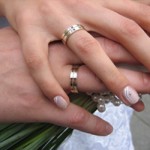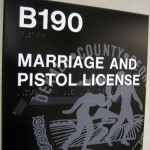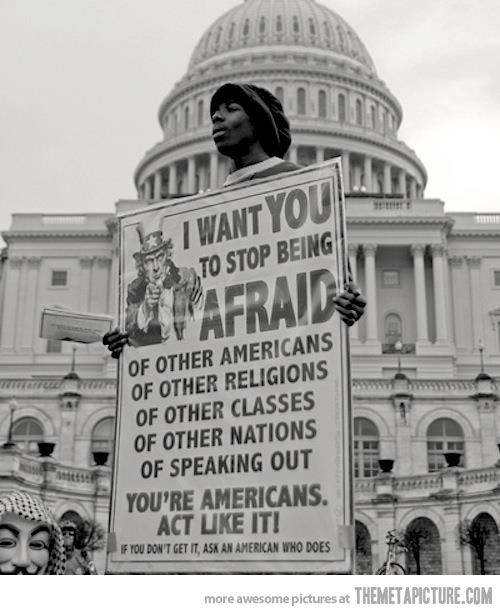 A chat between a couple of gay and straight married women.
A chat between a couple of gay and straight married women.
So last week I was sitting in a church in Birmingham, Alabama with a new friend, Anna. Anna has just this year joined our church in Kirkwood, been baptized, secured a full ride to Candler School of Theology – and gotten married. We are so lucky and grateful to be sharing her journey and gifts for ministry. She has definitely brought a vibrant light to our community. As we were sitting in that Birmingham church, waiting for a denominational worship service to begin, she excitedly turned to our pastor and I and with a huge grin flashed us a picture on her phone. Her new husband had just sent a text with a picture of their wedding license which had arrived in the mail. It was official in a whole new way, the state had signed, sealed and delivered their own approval of the couple’s love and commitment to one another.
Instantly the wrong emotion sprang up inside of me like a fetid troll under a bridge waiting for a gleeful couple to come skipping across. I was angry, I was jealous, I was bitter. In a flash I felt all these rancid feelings, and then guilt. First the tackiness – “well good for you honey, half the people sitting in these pews around you are denied that little piece of paper. Nice of you to share.” Just flat ugliness on my part. The guilt of my misplaced anger gave way to my truth – of course I am happy for her, of course I celebrate her joy. I believe in marriage and that means I believe it in for everyone, everyone, everyone. Not only do I believe in it, I celebrate it for anyone who finds that love and makes a covenant with that person, before God and community, to live out all of life’s journeys together. As it turns out, Anna is a blogger too – so I asked her to lunch the other day – first to claim my own ugliness and acknowledge that I am in fact very happy for her rather than the cranky lesbian from whom she could feel waves of bitterness rise like so much heat off Peachtree St. in August. I have asked Anna to share in a conversation with me here to talk about this thing marriage.
Anna, I know you have thought carefully about what it means to celebrate your marriage in a community with gay and lesbian couples who are denied the same rights as you by the state. The woman who officiated your own nuptials, signed the licence and mailed it to the state can not in Georgia enter into the same state sanctioned contract.
We’re not asking for anything special, I am certainly not asking for any church that does not believe they should marry us to do so, I am asking for civil rights, legal recognition by the government that has seems to claim “liberty and justice for all.”
Would you share some of your thoughts about this?
Anna’s reply…
 First off, Kimberly, you were by no means a fetid troll or cranky lesbian, although I do appreciate the graphic hyperbole! In truth, I felt an ugliness myself for not having thought more carefully about the feelings of those around me when I gleefully flashed that text photo of my wedding license. I didn’t think in that moment because up until then really, I hadn’t realized how weighty that marriage license would feel.
First off, Kimberly, you were by no means a fetid troll or cranky lesbian, although I do appreciate the graphic hyperbole! In truth, I felt an ugliness myself for not having thought more carefully about the feelings of those around me when I gleefully flashed that text photo of my wedding license. I didn’t think in that moment because up until then really, I hadn’t realized how weighty that marriage license would feel.
See I have always approached the covenant of marriage as primarily a spiritual matter, and because I’ve always been part of faith communities that uphold the spiritual unions of both gay and straight couples, I saw state marriage inequality as an outmoded relic of dying prejudices that would sooner or later catch up with God’s law of Love. Real weddings happen in church, or in community, when families open their hearts to one another and we make solemn promises about what we will do with the divine gift of love. I thought compared to my unforgettable wedding ceremony, the postal delivery of my state marriage license weeks later would have about as much emotional impact on me as my recent tax filings. I was wrong.
I think our pastor Susannah was trying to help me see this in one of our pre-marriage counseling sessions when she asked me how I thought my sister, who is gay and in a committed relationship, was taking my upcoming wedding. “I don’t think it’s a big deal really,” I said. “To be honest she has only expressed to me the stomach-drop feeling in regard to her being the older sister and me being the younger one, who’s taking this step before her. I mean, when she’s ready to get married we’ll all just fly back home to Massachusetts and have the big event there. It’s not even that much of an inconvenience because that’s where we’re from, where our home church is, where our parents live. She’ll get everything that I’ve gotten by virtue of our liberal heritage.” Ignorance is bliss, right?
I’m curious what you think, Kimberly: if your family, friends, church and home state all recognize and affirm your marriage – but the state of Georgia does not, how does that matter? I see now that it does, but I’m curious to see what you think the meaning and importance of state marriage is.
And my response...
Anna, I deeply appreciate your willingness to be in conversation with me and your graciousness with my flash of bitternes.
Since Georgia is my home-state I do not have the advantage of having my home base legally recognize my marriage. And really, until it is legal everywhere then it is only barely legal. If I go to another state to have my marriage validated by the government it serves no real purpose as a life-long resident of Georgia. There are no legal protections afforded me by a piece of paper signed in another state. We don’t need the paper to “feel” married but we do need it in order to be protected the same way you and your husband are. Having a ceremony in another state where my larger community can not be present also undermines my understanding of the wedding ceremony as about more than the couple and truly about vows between the two and the larger family who promises to support them in their journey.
Our blessed but not state-sanctioned marriage is real in every spiritual and practical way. My marriage is recognized as such by me, my wife, our children, our church and our larger community. Our marriage looks much like any other – “I love you”, “Stop putting your damn shoes there”, “Throw me a new roll of TP”, “Did anyone feed the dogs?”, “Who’s picking up the kids today?” ,“Why are we always running out the door last minute for church?”, “Holy crap, is it April 15th again???”, “I’m sorry that your day was so hard.” “Way to go on that 100 on your final!”, “Good night lovey, sweet dreams.”
Yes our marriage is real – 100% – well except for that whole legal thing and the fact that I could be denied visitation rights to her if she were shot in the line of duty, or we pay our taxes at a higher price than mixed gender couples, oh yeah, and insurance – don’t get me started on insurance. Without legal affirmation by the state our rights are extremely vulnerable to the whims and prejudices of individuals and organizations.
Update: Anna’s reply to my response…
 Yes. I realize now that without a legal marriage to my husband, yes, I would feel less married.
Yes. I realize now that without a legal marriage to my husband, yes, I would feel less married.
But here’s the thing – it’s not just about the legal benefits that you mention, Kimberly. Of course equality begins with those fundamentals, but there is definitely something more to civil marriage than the protections and rights it affords. I truly feel now that the whole of marriage is far greater than the sum of its legal parts.
Here’s how I know: Andrew and I were actually domestic partners before we got married.
The Federal Reserve Bank (Andrew’s employer) has fantastic domestic partner benefits, which we soon found out were open to straight couples as well. So for the past three years (yes, we were living in sin) Andrew and I have gladly banked the savings of sharing a health and dental plan – and even made each other the beneficiaries of our life insurance policies. While I recognize that there is much more to other states’ domestic partner protections, for the most part, Andrew and I were already receiving many of the crucial day-to-day benefits that so many gay families struggle to provide for each other because employers and insurance companies are not required to be as fair and just as the Fed system is.
Why am I telling you this? It’s not to paint the picture of just how liberal and privileged my bubble is (although I have come to see its opacity more and more with each keystroke of this conversation), but it’s to say that the *movement for marriage equality is far greater than equal rights and protection under the law, it’s about covenant, it’s about spirituality, it’s about God. It’s the only place in our legal system that I know of where I cannot separate church from state.* Yes, I did just open that can of worms.
So many people are against gay marriage because of their religious convictions. And so many marriage equality activists have tried to fight this prejudice by pointing to the legal protections of marriage and shining a light on the injustice of denying them to gay couples, holding fast to the power of the separation of church and state.
But in my mind and in my heart, I can’t separate my legal marriage from my religious marriage – and neither can anyone else. In this one area of our society, ministers become judges and judges become ministers. My husband’s parents never had a church wedding, yet despite their very conservative Christian beliefs now – they consider their Justice of the Peace ceremony to have been just as spiritually valid as if they had been married by Billy Graham himself. The edges between church and state when it comes to marriage are more than bleeding – they are hemorrhaging.
So my response to this messy situation is this – in order to actually achieve marriage equality, I truly believe that the church will need to change. We’re slowly getting there but I think that we will not have reached authentic equality until houses of worship and our government join people together with the same synchronization and harmony that they do for straight couples today. That should be our goal.
—–
What are y’all thinking out there?
The religious covenant and the legal standing are both very important to many. I wonder – how many folk out there – gay or not gay – would or do feel less married without the state license? What is more important, the religious ceremony or the state recognition?
Here’s a helpful resource from the HRC talking about the reason why legal marriage equality matters.











